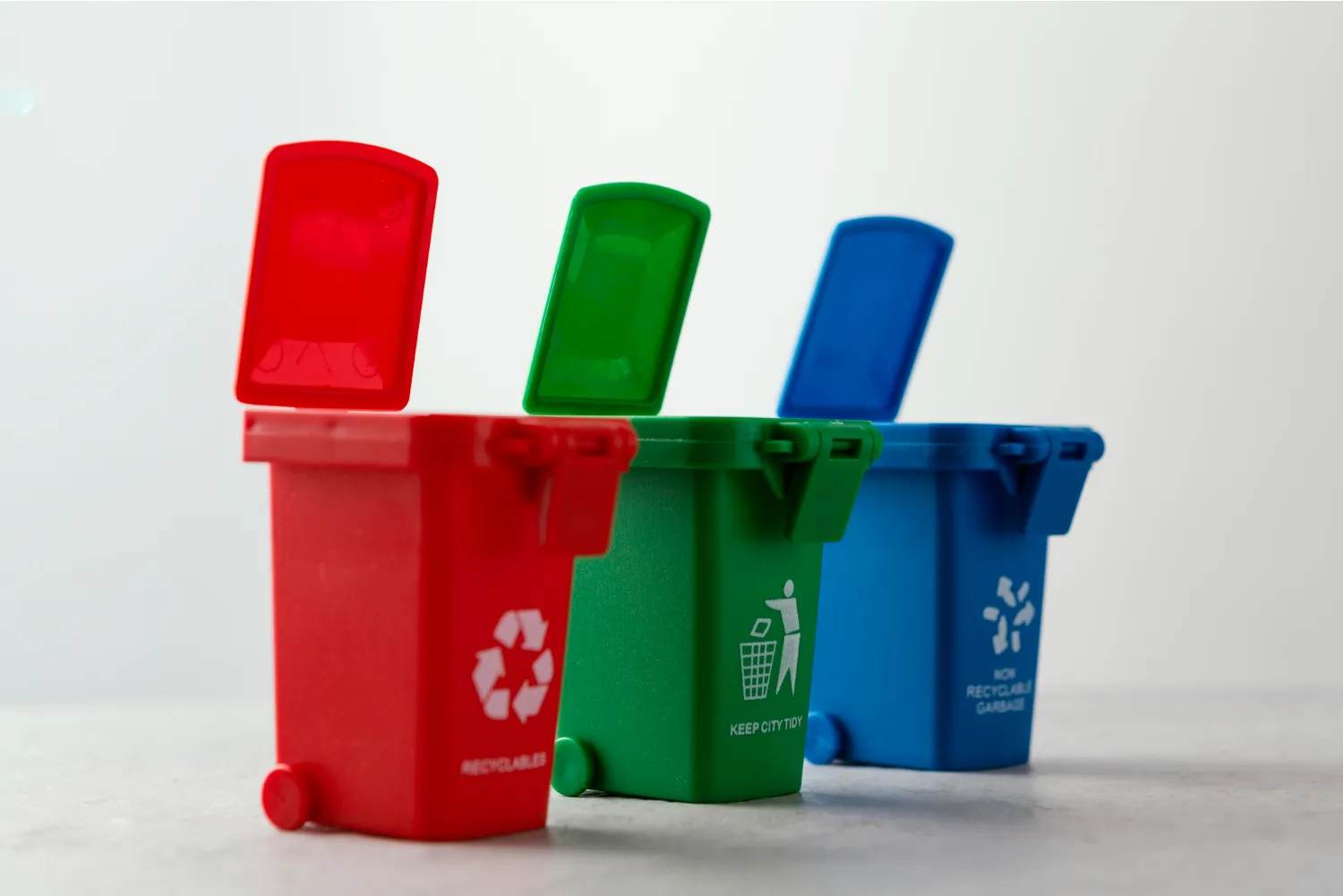What Makes a Good Waste Bin for Industrial Use? It’s More Than Just Size
Industrial bins are a necessary component of our workshops, warehouses and factories. Beyond simply holding waste, maintaining bins cleanliness and durability directly affects efficiency, economy, safety and health. A solid waste management strategy in industrial settings is built on the selection and use of bins that are hygienic and long-lasting.
We go over how to maintain sturdy and clean industrial waste bins in detail in this blog.
Table Of Contents:
Robustness And Durability Of The Material
- The strength and longevity of the materials used to construct industrial waste bins are among the most crucial considerations.
- When handling heavy industrial waste bins made of lightweight materials or regular plastic are more likely to break and deform.
- This results in higher expenses for ongoing repairs and new bin purchases.
- Bins composed of superior materials that are resistant to heat, cold and impact on the other hand will endure for many years.
- Industrial settings can only function safely and effectively with bins that have such long-term durability.
Create With Functionality In Mind
- It’s crucial to realize that industrial waste bins are more than just storage containers when making your selection.
- The only bins that will be effective and secure in everyday use are those that are made to guarantee practical functionality.
- They should for instance have a smooth interior that is easy to maintain handles for safe handling, a convenient wheel system for emptying waste and an ergonomic design that is simple to open and close.
- Furthermore extra features like safety locks, bases that won’t leak and seals that won’t smell are necessary because some industrial sectors handle hazards.
- Therefore the best choice in industrial settings is to select bins that guarantee functionality and everyday convenience rather than just the object’s beauty and appearance.
Features For Safety And Hygiene
- When selecting industrial waste bins two of the most crucial factors are safety and hygiene.
- If proper safety precautions are not taken, frequently used bins can present risks and health issues.
- But in industrial settings bins that are made with hygienic and safety considerations are crucial.
- Helps prevent odors and germs from spreading.
- Makes handling the container safer and easier for employees.
- Stops waste from piling up maintaining cleanliness.
Respect For The Rule
- For many industries waste collection handling and disposal are governed by government regulations and international standards.
- Each category such as hazardous chemical waste, biomedical waste and recyclable materials has its own set of rules and safety requirements.
- Violations of these laws may result in severe consequences such as fines and the loss of operating licenses.
- Therefore the legitimacy and stability of the organization are increased when industrial waste bins that are legally approved internationally certified and appropriately labeled are chosen.
Longevity And Cost Effectiveness
- Long-term usability and financial benefits are the most crucial factors to take into account when selecting industrial waste bins.
- When you first purchase cheap low-quality bins they might seem like a good deal but within a few months they are more likely to break, leak and become useless.
- These issues may result in downtime, higher maintenance expenses and the ongoing need to buy new bins.
- Over time this could cause the organization to bear a heavy financial burden.
- However purchasing bins composed of sturdy long-lasting and high-quality materials may be slightly more expensive up front but it will end up being a far more cost-effective option over time.
- These bins can be used effectively for many years which lowers maintenance expenses and increases the organization’s overall financial efficiency.
Sustainability Of The Environment
- Environmentally friendly construction is crucial when selecting industrial waste bins.
- A significant amount of the waste produced by industrial processes is converted into plastic or other delicate materials which leads to long-term environmental issues and natural pollution.
- This can be resolved by combining industrial operations with environmental preservation by creating waste bins from recycled materials (recyclable plastic). eco-friendly attributes.
- Metal and plastic are manufactured in a recyclable manner.
- Utilizes materials that are more durable and reduces recycling.
- Assists in adhering to legally required recycling and disposal practices.
How To Keep Industrial Waste Bins Clean And Long-Lasting: Tips
- Cleaning can be maintained by promptly removing liquids debris and small debris.
- It is recommended to use soft cleaning supplies. To clean the bin only use gentle brushes or microfiber cloth.
- Using harsh scrubbers will scratch the surface and reduce its durability.Neutral disinfectants can be used to eliminate bacteria and residue odor. Make sure the bins are thoroughly cleaned and dried.
- Both mildew and corrosion can result from damp conditions. Avoid harsh chemicals at all costs.
- Refrain from dragging and strong impacts. Using a trolley or wheels to move the bin can help it last longer.
- The bins lifespan can be increased by making small repairs as soon as possible.
FAQ
For five to ten years bins can be used efficiently with the right upkeep and cleaning.
Only neutral disinfectants and common soft detergent solutions should be used. Preserving durability can be achieved by avoiding strong acids, alkalis and solvents.
Keep the bins clean and empty them every day. It’s advised to wash and disinfect thoroughly one or two times per month.
